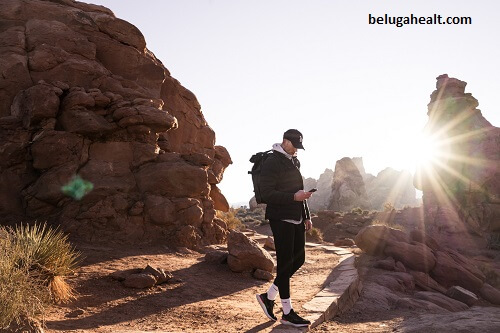Arizona health literacy goals

Arizona health literacy goals:
Arizona Health Literacy Groups: Empowering Knowledge for Communities
Introduction:
Health literacy is a part of public health in a community as well as the outcomes of individual health. Fundamentally, it is the ability to seek health information and read it. And use knowledge about healthy and unhealthy behaviors to provide a decision-making basis for appropriate choices.

There are several groups in Arizona, all trying their best to serve the population locally with the knowledge and skills to build proper usage of the healthcare system. This paper takes an in-depth look at the importance of the groups, the activities they undertake, and the extent to which the acts preserve good community health. Also, an extremely extensive FAQ section addresses what people want to know about in Arizona.
What are health literacy groups?
Health literacy groups are termed as other brands of organizations. And coalitions formed to provide improvements within communities. They comprise healthcare providers, educators, and community leaders among many more who seek healthier communities. In Arizona, different groups deal with significant issues, ranging from chronic disease management to mental health awareness to ensure all members of society can decide on their concerning matters of their health.
Aims of Organizations that Work on Health Literacy:
- Enhanced Know-how: Enhance people’s awareness of health concepts and about the individuals in the healthcare system.
- Accessibility of Health Information: Provide health information to all people irrespective of their language,
educational background, and social and economic status.
- Involvement of All Stakeholders: Involving all the people concerned for an integrated approach towards health literacy.
Power to the People: Empower the people with the strength of advocating their health and the health services that it entails.
Why Is Health Literacy Important?
Why should health literacy be a priority?
- Improved Health Outcomes: Improved health literacy in individuals leads them towards better health behaviors, good compliance with treatments, and better chronic disease management.
- Improved Preventive Care: The individual understands and increases participation in screening, vaccination, and checking.
- Reduced Healthcare Costs: Health literacy ensures that the healthcare costs incurred are reduced to a minimum through appropriate service resource utilization.
Health Literate Decisions: The person would be able to make informed decisions regarding their health and treatment.
Major Organizations of Arizona:
Arizona Health Literacy Coalition (AHLC):
The Arizona Coalition is one such flagship organization that has aimed to empower health literacy throughout the state. Being comprised of members from healthcare providers, educators, and community advocates, it tends to allow Arizonans to understand and apply available health information properly.
Key Activities:
- Community-based Workshops: Effective workshops for accessing the healthcare system and understanding healthcare information
- Resource Development: Accessible clear, easy-to-understand resources in multiple languages which can reach all audiences
Collaborations: Organizational partnership at the local level to attain maximum reach and influence Cultural Competency Initiative: This is an interagency initiative that will be promoted for better and more culturally competent. This is targeted towards the purpose of making it ensure that the health information disseminated to the various diverse populations of Arizona is culturally appropriate and accessible to them.
Main Initiatives:
Cultural Training Programs: Providing training to the health care providers about how they should communicate with their patients with specific cultural backgrounds.
Culturally-Tailored Learning Materials: These materials are tailored based on specific values in the culture and language.
3. Arizona Department of Health Services (ADHS):
The ADHS is one of the key structures in which public health is executed, and it is inclusive of health literacy. The department has initiated various programs, including education and outreach to the public on health matters.

Milestones Projects:
Public Health Programs: State-wide campaigns on health, vaccines, and diseases.
Collaborative Work: Involve the local level by working jointly with local health departments and other agencies to enhance the awareness of health literacy and the effects it causes.
4. Community Health Centers at Local Level:
Most local community health centers in Arizona provide health literacy programs for the populations they serve. The underrepresented are usually served by these centers, which, in most cases, focus on services that are culturally and linguistically appropriate to deliver health education to those communities.
Major Activities:
Health Education Classes: Regular classes and seminars on nutrition, chronic disease management, and preventive health care, among others.
One-on-One Counseling: One-to-one assistance to ensure that information is adequately presented and a better comprehension of health conditions and treatment options.
Health Literacy Groups Challenges:
The health literacy groups despite their success face the following challenges:
- Language Bars: Most of the residents are not native English speakers. Thus, they cannot read and understand health
information.
- Digital Marginalization: Total overreliance on digital inputs shuts out persons who cannot access the internet as well as those unable to handle technology.
- Sociocultural Disparities: Low-income people are unlikely to have health or even health literacy.
- Culturally Sensitive Disparities: The different perspectives through which health and healthcare would be viewed by cultures would have implications for the reception and interpretation of information.
Counterbalancing Strategies:
Health Literacy Organizations implement these along with a wide array of others to bridge these barriers:
- Multilingual Materials: Health information that is translated into more languages makes it accessible to more people.
- Involving Communities: Directly work with the people of the community for the development of health programs to suit the culture.
- Taking advantage of Technology: Develop interactive, inclusive materials and services on the Internet so they can be accessed from anywhere using any device to increase access to high-tech populations.
- Collaborations: Partnering with local agencies and community influencers to tap into their outreach efforts and submit proposals based on local needs.
Arizona Health Literacy Groups:
Arizona groups continue to flourish and grow as outreach efforts expand into multiple categories, including the following focus areas for growth and improvement:
1. Increasing Outreach:
An increase in the number of residents, with outreach, reaching out for consultation with groups; health information reaches all marginalized communities.
2. Technology utilization:
Health literacy groups largely depend on these technologies to reach more people. It is easier to access health information through courses online, mobilization via social media, and mobile applications.
3. Training the Healthcare Providers.
Further education in communication and cultural competence of health workers would translate to effective communication with patients and consequently.
4. Advocating for Policy Change
Health literacy advocacy bodies advocate for policies where educational ability is preferred over health ability and more funding for programs on reducing health disparities.
Conclusion:
Health literacy might be one of the most vital components of public health in empowering individuals to take responsibility for their health and well-being. Arizona, towards the advancement of promoting health education and information, has different groups that have developed significant strides on their part. Through community engagement, resource development, and collaboration, the state of Arizona ensures that the whole population has the skills and capacity to survive the different markets of health care.
Frequently Asked Questions about Health Literacy Groups in Arizona:
What is health literacy?
Health literacy is the ability to obtain, process, and understand basic health information and services needed to make appropriate health decisions.
Why does health literacy matter?
It is absolutely critical in attaining better health results, promoting preventive care, and reducing expenditures for healthcare through a well-informed choice.
What are some of the various organizations that find themselves having programs here in Arizona?
There are many agencies, such as not-for-profits, community health centers, educational institutions, and government agencies.
How can I get involved in Arizona’s health literacy organizations?
You can volunteer attend events or join organizations that do health literacy work.
Are materials available in languages other than English?
Yes, there are several organizations that create their materials in more than one language to be responsive to Arizona’s diverse populations.
How do health literacy groups measure their effectiveness?
Primarily, the group survey collects feedback from participants and monitors health outcomes to evaluate the effectiveness of the work being done.
Is there an opportunity for a program provided by health literacy groups?
Yes, maybe. The programs offered include workshops, community seminars, health education materials, as well as individual counseling services.
Do these groups transcend cultural barriers?
Yes, they do.
These groups develop culturally responsive materials. They also perform cultural competency training for health providers, and they involve local leaders in the development of programs.
Can such groups train health care providers?
Yes, since most organizations have training programs that help healthcare providers be better at communication and engage effectively with the patients.
What are some of the long-term goals of health literacy in Arizona?
Higher levels, reduced health disparities, and, ultimately, a culture of health empowerment within communities.

Arizona Teams create the path to healthier, more aware communities through health literacy: healthier communities for all Arizona.
